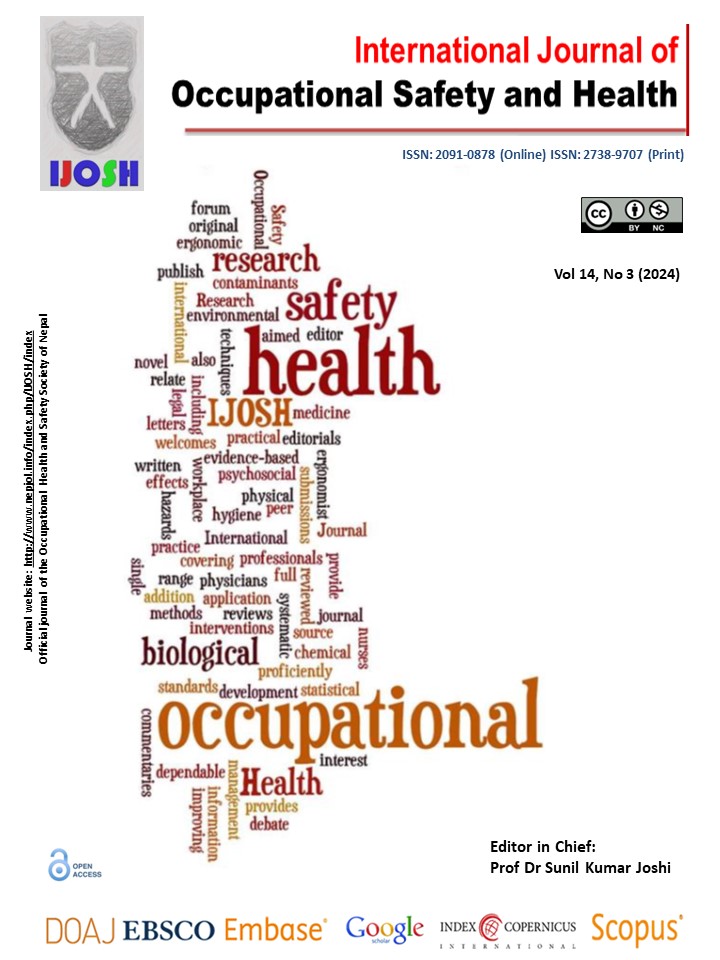Implementation of National Health Insurance Scheme for Civil/Public Servants in Nigeria
DOI:
https://doi.org/10.3126/ijosh.v14i3.44912Keywords:
Barriers, Health insurance, Payments, UnderfundingAbstract
Introduction: Nigeria’s health system is characterized by gross underfunding, poor stakeholder coordination, and inadequate numbers and skills of health care workers. Thus, the study assessed the factors affecting the implementation of the National Health Insurance Scheme (NHIS) in Minna, Niger State, as well as the willingness of civil/public servants to enroll in the scheme.
Methods: The study employed a descriptive research design that is also comparative. Data were collected using questionnaires and presented and analyzed using IBM-SPSS version 25.0 for Windows with the help of tables and graphs. The respondents were drawn from 10 ministries in Minna using a multi-stage sampling method.
Results: A higher percentage of respondents (85.2%) said the scheme would be able to solve the problem of funding for health care delivery. However, more than half of the respondents, 56.1%, were either unsatisfied or very unsatisfied with their salaries. Nevertheless, 82.4% expressed good health status. All the respondents (100.0%) pay for their families’ healthcare services without receiving any financial support from any other person. Out of 127 that responded to the question asking about the effects of medical bills on their monthly expenditure. Yet, the majority, 265 (81.8%), were willing to part with a percentage of their salaries to contribute to NHIS.
Conclusion: The State Government should see the willingness of the civil servants to participate in the scheme as an opportunity to commence the implementation of the scheme without further delay to enable civil servants to participate and enjoy the benefits that the scheme offers.
Downloads
Downloads
Published
How to Cite
Issue
Section
License
Copyright (c) 2024 The Author(s)

This work is licensed under a Creative Commons Attribution-NonCommercial 4.0 International License.
This license enables reusers to distribute, remix, adapt, and build upon the material in any medium or format for noncommercial purposes only, and only so long as attribution is given to the creator.





